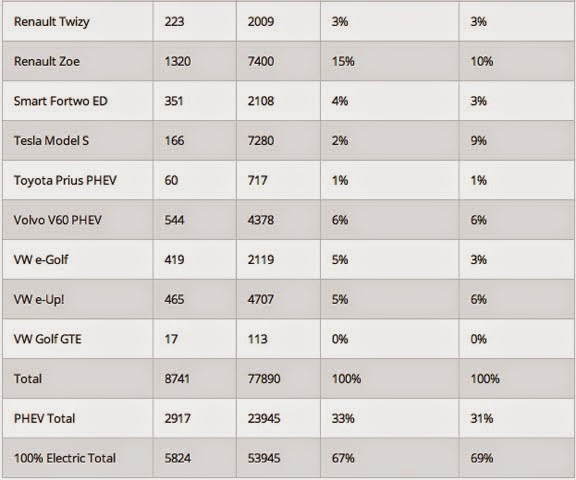
Kandi electric car (Image: Kandi Technologies Group)
GreenCarReports.com: China has been the world's largest auto market for several years now, with 18 million passenger cars and another 4 million commercial vehicles
But until recently, sales of plug-in electric cars have lagged those in the U.S. (whose market seems likely to be around 17 million vehicles this year).
Now, according to an article on the Chinese news site Sina Auto (via Want China Times), in September the country's electric-car sales exceeded those of the U.S.--likely for the first time.
While U.S. plug-in sales vary from month to month, as do vehicle sales overall, this year's rate is roughly 10,000 electric cars a month on average.

BYD Qin plug-in hybrid in showroom in Costa Rica
In September, according to the article, Chinese buyers purchased 11,991 cars with plugs throughout the country, against 10,551 in the U.S.
Some of those Chinese electric cars would likely be deemed low-speed vehicles under U.S. law, and many would not pass North American crash-safety tests.
Still, given the hurdles to electric-car adoption in the country-including fierce price competition for lower-priced cars, and the prevalence of large apartment buildings against single-family homes-the total is a notable achievement.

Chinese battery electric crossover: BYD e6 test drive, Los Angeles, May 2012
Both national and regional governments in China are heavily pushing adoption of electric cars as one way to address the dangerous level of airborne emissions from vehicles and industry in most Chinese cities.
So-called "new
The definition of a new energy vehicle can vary from jurisdiction to jurisdiction, but in general it means a car

 Gateway will test self-drive passenger shuttle vehicles in Greenwich
Gateway will test self-drive passenger shuttle vehicles in Greenwich











